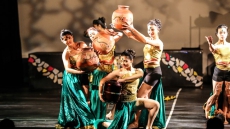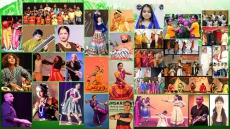Diwali has a variety of connotations in the religions of India. The festival is celebrated by Sikhs, Hindus, Jains and Buddhists, according to their beliefs, cultures and significance.
Diwali is celebrated by Hindus to signify the homecoming of Lord Rama to Ayodhya after 14 years of exile, and after defeating Ravana. The people of Ayodhya had welcomed Lord Rama, Sita and Lakshman to their kingdom by lighting clay lamps and letting off crackers.
It is celebrated by followers of Jainism. Lord Mahavira, the last Jain Tirthankar of the era, had achieved Nirvana on the day of Diwali. They also celebrate Diwali as the start of the New Year from the fourth day of Diwali and start their new accounting year for business from Diwali.
Firing of crackers is generally avoided by the Jains on account of noise pollution and instead they contribute to charity, observe fast, recite mantras and decorate temples, offices, homes, shops with clay lamps, the symbol of knowledge or removal of ignorance.

Sikhs celebrate by lighting the Golden Temple on Diwali for historical reasons. On this day the sixth Guru, Guru Hargobind, and 52 other princes were released from prison in 1619. Mughal Emperor Jahangir had imprisoned Guru Hargobind and 52 princes. He agreed to release Guru Hargobind but on the Guru’s request to free the princes as well the Emperor said only those who could hold onto his cloak tail would be allowed to leave, thereby limiting the number of prisoners who could leave. Guru Hargobind had a cloak made with 52 pieces of string so each prince was able to hold onto one string and leave.
Diwali is celebrated by the Buddhist community as it is believed that on this day Emperor Ashok was converted to Buddhism. It is celebrated as Ashok Vijayadashami with the chanting of mantras.
It is also celebrated as Naraka Chaturdashi, to commemorate the victory over the demon Narakasura. The demon was killed by Lord Krishna during the Dwapara Yuga. Narakasura used to kidnap girls and force them to live with him. People were terrified by his act and decided to plead Lord Vishnu for help. Lord Vishnu came to their rescue in the form of Lord Krishna. He beheaded Narakasura with his Sudarshana Chakra. Before dying, Narakasura requested a boon, that everyone should celebrate his death with colourful lights. So this day is celebrated as Naraka Chaturdashi – the day before Diwali. In South India, Diwali is celebrated on the occasion of Naraka Chaturdashi.
It is also celebrated as the homecoming of the Pandavas after 12 years of exile and one year of living in secret. According to the Mahabharata, on Kartik Amavasya the Pandavas returned home after being banished as a result of losing a game of dice.
According to the Hindu calendar the Marwari New Year is also celebrated on Diwali. Gujaratis also celebrate their New Year a day after Diwali.
On the custom of gambling at Diwali, people believe that on this day Goddess Parvati and Lord Shiva had played dice. The Goddess, it is believed, had declared that those who gambled on Diwali night would prosper for the entire year.
Another incarnation of Lord Vishnu is associated with Diwali. King Bali was both generous and ambitious. Concerned by his hunger for power, the devtas appealed to Lord Vishnu to check King Bali. The Lord came to Earth in the form of a Vamana (dwarf). He went to King Bali and said: “You are the ruler of the three worlds: the Earth, the world above the skies and the Underworld. Would you give me the space that I could cover with three strides?”
Hearing the dwarf’s request, Bali laughed and accepted his request. At this point, the dwarf changed into his real form of Lord Vishnu, and his three strides covered the Earth, the Skies and the Universe. After failing to accept his request to provide three strides of land, Vamana sends King Bali to live in the netherworld for some period. On the special occasion of Diwali, Vamana is remembered by his devotees.




